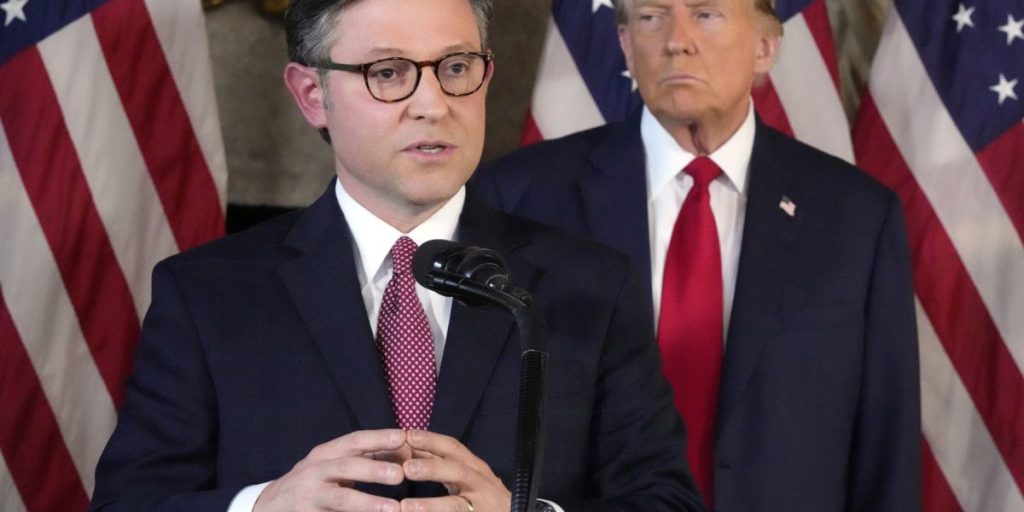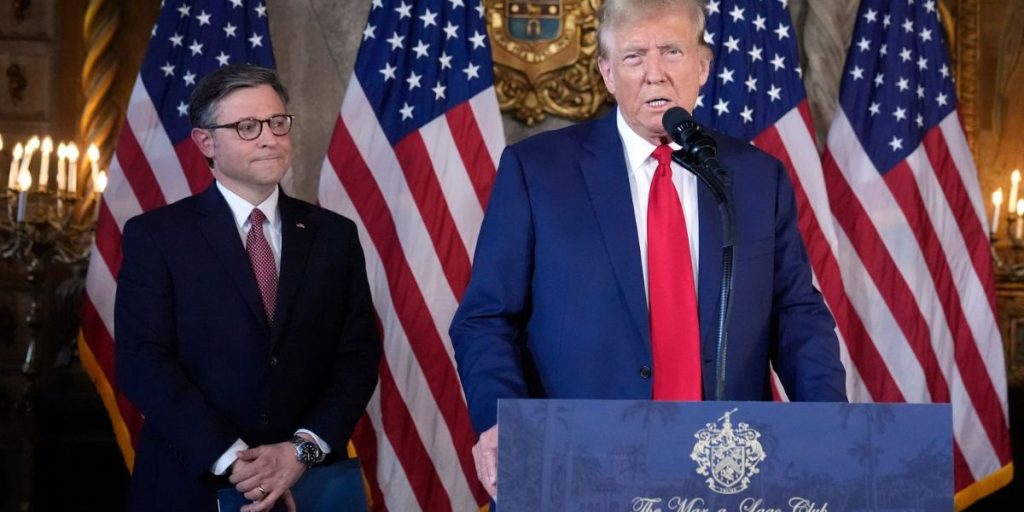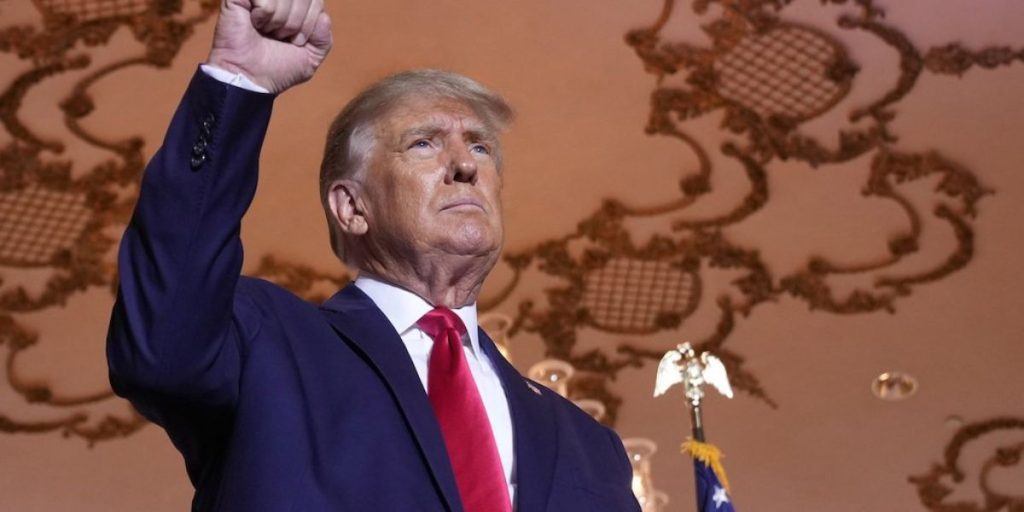Former President Donald Trump and House Speaker Mike Johnson, R-La., appeared together on Friday to promote legislation aimed at preventing noncitizens from voting in federal elections, which is already illegal in America.
Johnson provided a broad summary of a bill that House Republicans will soon submit that would need additional citizenship paperwork for people to register to vote, which experts say would make voting more difficult for many eligible voters, including naturalized citizens and young voters.
“We cannot wait for widespread fraud to occur,” he said during a press conference at Trump’s Mar-a-Lago estate. “Especially when the threat of fraud is growing with every single illegal immigrant that crosses that [southern U.S.] border.”

For more than a century, the idea that immigrants have undue influence over American elections has persisted.
Individual states began prohibiting noncitizens from voting over a century ago, and Congress approved legislation in 1996 that clearly prohibited the practice in all federal elections.
Numerous studies have also proved that it nearly never happens, but as more conservative voters indicate immigration is a priority for them, it’s becoming clear that election propaganda in 2024 will focus on the same problem.
Last month, NPR obtained a two-page letter sent by conservative attorney Cleta Mitchell, a former Trump adviser, which promoted a series of bogus claims about noncitizens voting. The text focused mostly on the implementation of a 1993 law that made it easier to register to vote, something Johnson also noted in his remarks on Friday.
They have also promoted the baseless claim that the Biden administration is allowing migrants to breach the southern border for political reasons.
“We believe one of the reasons for this open border… is because they want to turn these people into voters,” Johnson stated, without giving any evidence.
Election officials verify citizenship in various ways across states, but federal law requires voters to provide a unique identification number when registering to vote, which is typically a driver’s license or Social Security number, so election officials can usually collaborate with those agencies to verify citizenship status.

“Most applicants use their [driver’s license] to register,” Tammy Patrick, a former Arizona county election officer and CEO of the charity Election Center, stated in an email. “This number often serves as the validation of citizenship since most DMVs retain citizenship status in their databases.”
Experts argue that drafting legislation is a way for lawmakers to signal to voters that this is a serious issue, despite the fact that there is no evidence to support the notion that noncitizens vote in significant numbers.
According to the Voting Rights Lab, nine states have implemented new laws aimed at identifying and removing noncitizens from voter lists since 2020, with legislation now ongoing in 16 states.
“Perception is 9/10 of reality,” Ron Hayduk, a specialist on noncitizen voting at San Francisco State University, told NPR earlier this year. “Putting the solution on the table indicates that there was a problem. And I believe that’s part of the objective. [These laws] solve a problem that does not exist.”
Georgia’s Republican secretary of state, Brad Raffensperger, directed his staff to conduct a citizenship audit in 2022, which discovered fewer than 2,000 suspected noncitizens registering to vote in the state over the previous 25 years. Nobody was actually able to vote.
“Noncitizens are not voting in Georgia,” Raffensperger said in a recent NPR interview, yet he applauded Johnson and Trump’s remarks on Friday.
A recent research in Arizona (originally reported by The Washington Post) discovered that less than 1% of noncitizens attempt to register to vote, and even in those cases, the vast majority are believed to be errors.

However, a few municipal jurisdictions have sought to enable noncitizens to vote in local elections, further complicating the situation. San Francisco, for example, allows noncitizen parents and guardians to vote in school board elections, as do certain communities in Maryland and Vermont.
Election officials in those jurisdictions put in place procedures to ensure that those people do not vote in contests for which they are not eligible.
Hayduk, on the other hand, claims that noncitizens frequently do not vote in regions where they are legally allowed to. People he’s talked about their experiences in these countries don’t want to jeopardize their legal status in the United States just to vote once — additional indication, in his opinion, that this isn’t a problem.
“In the interviews we conducted, we repeatedly heard from immigrants who expressed their excitement about the new law allowing them to vote, and it felt like it validated their voices. But, you know, do they put themselves at risk? “Not worth it,” Hayduk stated. “So clearly, they’re not going to do that for a federal election where there’s an explicit law passed in 1996 that would impose very serious felony crimes … and that would certainly lead to their detention and deportation.”